

Get in the KNOW
on LA Startups & Tech
XWhat Are LA’s Hottest Startups of 2021? We Asked Top VCs to Rank Them
Ben Bergman
Ben Bergman is the newsroom's senior finance reporter. Previously he was a senior business reporter and host at KPCC, a senior producer at Gimlet Media, a producer at NPR's Morning Edition, and produced two investigative documentaries for KCET. He has been a frequent on-air contributor to business coverage on NPR and Marketplace and has written for The New York Times and Columbia Journalism Review. Ben was a 2017-2018 Knight-Bagehot Fellow in Economic and Business Journalism at Columbia Business School. In his free time, he enjoys skiing, playing poker, and cheering on The Seattle Seahawks.
Despite — or in many cases because of — the raging pandemic, 2020 was a great year for many tech startups. It turned out to be an ideal time to be in the video game business, developing a streaming ecommerce platform for Gen Z, or helping restaurants with their online ordering.
But which companies in Southern California had the best year? That is highly subjective of course. But in an attempt to highlight who's hot, we asked dozens of the region's top VCs to weigh in.
We wanted to know what companies they wish they would have invested in if they could go back and do it all over again.
Startups were ranked by how many votes each received. In the case of a tie, companies were listed in order of capital raised. The list illustrates how rapidly things move in startup land. One of the hottest startups had not even started when 2020 began. A number doubled or even 16x'd their valuation in the span of a few short months.
To divvy things up, we delineated between companies that have raised Series A funding or later and younger pre-seed or seed startups.
Not surprisingly, many of the hottest companies have been big beneficiaries of the stay-at-home economy.
PopShop Live, a red-hot QVC for Gen Z headquartered out of a WeWork on San Vicente Boulevard, got the most votes. Interestingly, the streaming ecommerce platform barely made it onto the Series A list because it raised its Series A only last month. Top Sand Hill Road firms Andreessen Horowitz and Lightspeed Venture Partners reportedly competed ferociously for who would lead the round but lost out to Benchmark, which was an early investor in eBay and Uber. The round valued PopShop Live at $100 million, way up from the $6 million valuation it raised at only five months prior.
Scopely, now one of the most valuable tech companies in Los Angeles, was also a top vote getter.
The Culver City mobile gaming unicorn raised $340 million in Series E funding in October at a $3.3 billion valuation, which nearly doubled the company's $1.7 billion post-money valuation from March. It is no coincidence that that was the same month stay-at-home orders began as Scopely has benefited from bored consumers staying on their couch and playing ScrabbleGo or Marvel Strike Force.
The company's success is especially welcome news to seed investors Greycroft, The Chernin Group and TenOneTen ventures, who got in at a $40 million post valuation in 2012. Upfront Ventures, BAM Ventures and M13 joined the 2018 Series C at a $710 post-money valuation.
Softbank-backed Ordermark, which flew more under the radar, also topped the list. The company's online ordering platform became a necessity for restaurants forced to close their dining rooms during the pandemic and raised $120 million in Series C funding in October.
On the seed side, two very different startups stood out. There was Pipe, which enables companies with recurring revenues to tap into their deferred cash flows with an instant cash advance, and Clash App, Inc., a TikTok alternative launched by a former employee of the social network in August.
We will have the list of Southern California's top seed startups out tomorrow.
Hottest

PopShop Live ($100 million)
The live-streaming shopping channel created by Danielle Lin reportedly found itself in the middle of a venture capital bidding war this year. Benchmark eventually won out leading a Series A round, vaulting the app at a $100 million valuation. The Los Angeles-based platform has been likened to QVC for Gen Z and it's part of a new wave of ecommerce that has found broader appeal during the pandemic. Google, Amazon and YouTube have launched live shopping features and other venture-backed startups like Los Angeles-based NTWRK have popped up.
Boiling

Scopely ($3.3 billion)
One of the most valuable Southern California tech startups with a $3.3 billion valuation, the Culver City mobile game unicorn has benefitted from a booming gaming market that has flourished in this stay-at-home economy. Scopely offers free mobile games and its roster includes "Marvel Strike Force," "Star Trek Fleet Command" and "Yahtzee with Buddies." In October the company raised a $340 million Series E round backed by Wellington Management, NewView Capital and TSG Consumer Partners, among others fueling speculation that it was on its road to an IPO. Co-CEO Walter Driver has said that he doesn't have immediate plans to go public.

Ordermark ($70 million)
The coronavirus has forced the closure of many dining rooms, making Ordermark all the more sought after by restaurants needing a way to handle online orders. Co-founder and CEO Alex Canter started the business in 2017, which recently rang in more than $1 billion in sales. Ordermark secured $120 million in Series C funding by Softbank Vision Fund 2 in October that it will use to bring more restaurants online. The company's Nextbite, a virtual restaurant business that allows kitchens to add delivery-only brands such as HotBox from rapper Wiz Khalifa to their existing space through Ordermark, is also gaining traction.
Simmering

Cameo ($300 million)
Cameo, which launched three years ago, had its breakout year in 2020 as C-list celebrities like Brian Baumgartner banked over a million dollars from creating customized videos for fans. In the sincerest form of flattery, Facebook is reportedly launching a feature that sounds a lot like Cameo. Even though the company is still technically headquartered in Chicago, we included Cameo because CEO Steven Galanis and much of the senior team moved to L.A. during the pandemic and say they plan to continue running the company from here for the foreseeable future.
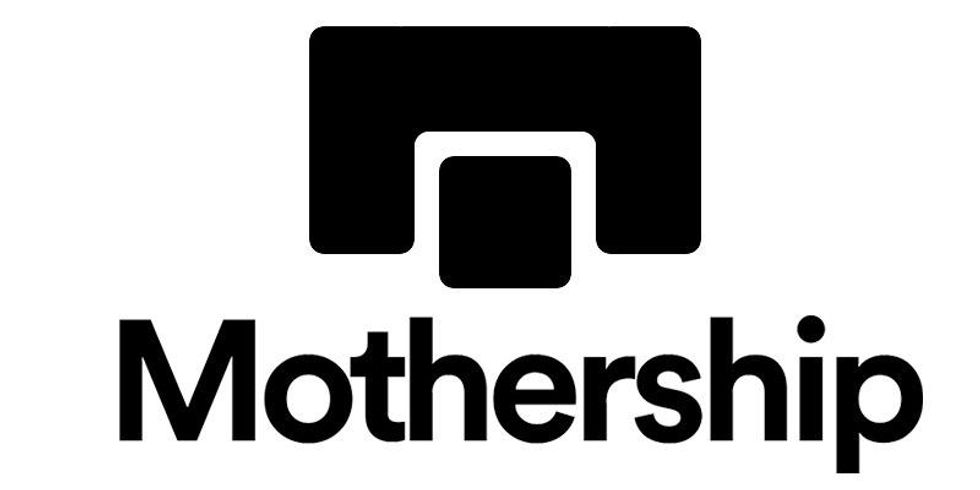
Mothership ($64 million)
Co-founded by CEO Aaron Peck, Mothership provides freight forwarding services intended to streamline the shipping experience. The company's tracking technologies connect shippers with nearby truck drivers to speed up the delivery process. It raised $16 million in Series A venture funding last year, driving the platform to a $48 million pre-money valuation.

Nacelle ($6.7 million)
Founded in 2019, Nacelle's ecommerce platform helps retailers improve conversion rates and decrease loading speeds for their sites. The software integrates with Shopify and other services, offering payment platforms and analytics integration, among dozens of services. Nacelle raised about $4.8 million earlier this year with angel investors that included Shopify's Jamie Sutton, Klaviyo CEO Andrew Bialecki and Attentive CEO Brian Long.
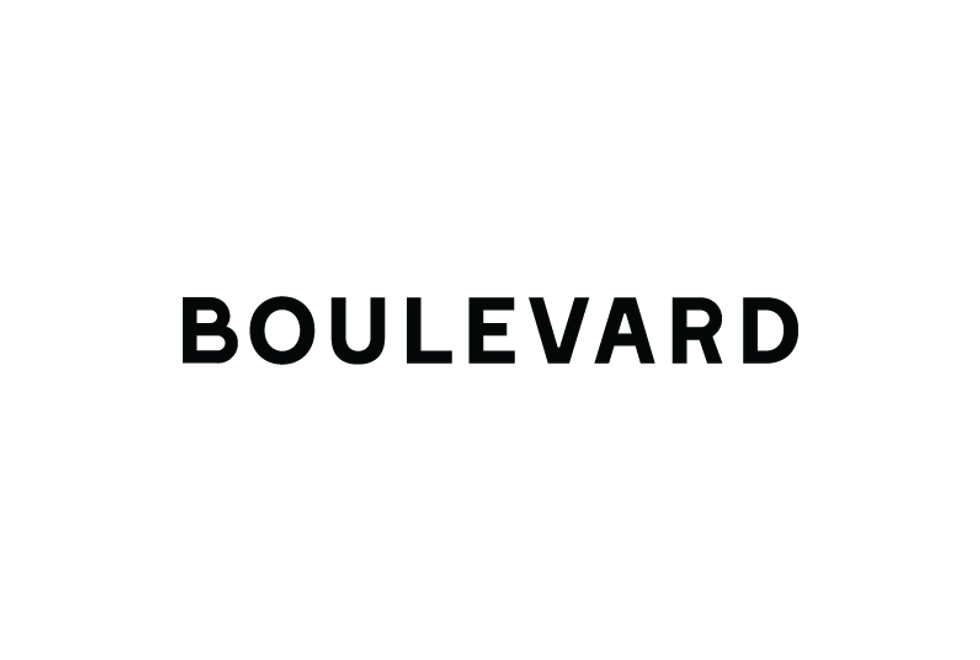
Boulevard ($30 million)
Matt Danna and Sean Stavropoulos came up with Boulevard when an impatient Stavropoulos was frustrated wasting hours to book a hair appointment. Their four-year-old salon booking and payment service is now used by some of Los Angeles' best-known hairdressers. Last month, the two secured a $27 million Series B round co-led by Index Ventures and Toba Capital. Other investors include VMG Partners, Bonfire Ventures, Ludlow Ventures and BoxGroup.

CloudKitchens ($5.3 billion)
Uber co-founder Travis Kalanick CloudKitchens rents out commissary space to prepare food for delivery. And as the pandemic has fueled at-home delivery, the company has been gobbling up real estate. The commissaries operate akin to WeWork for the culinary world and allow drivers to easily park and pick-up orders as the delivery market has soared during pandemic. Last year, it raised $400 million from Saudi Arabia's colossal sovereign wealth fund.
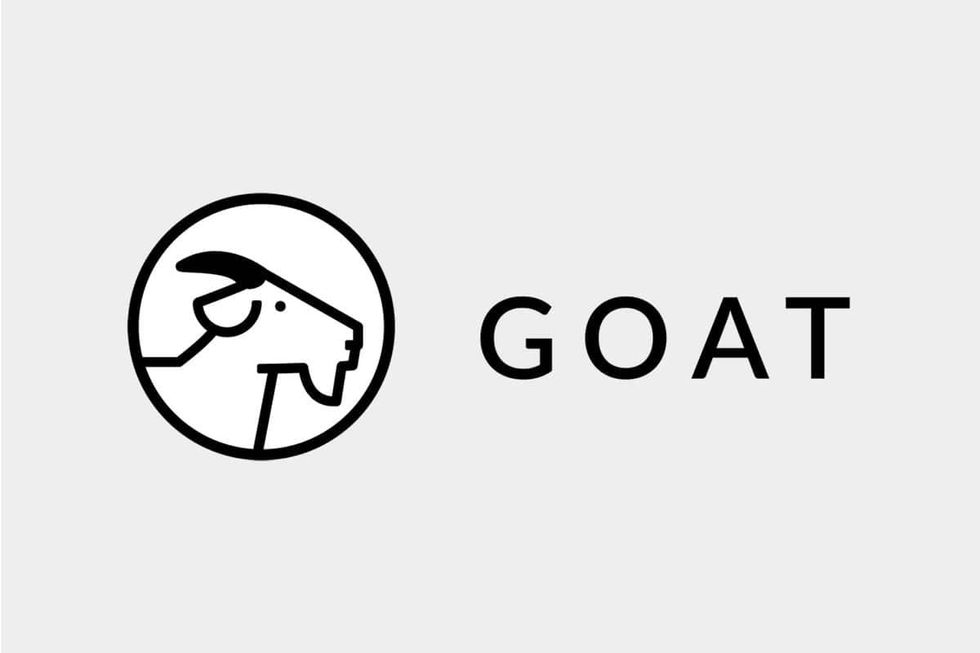
GOAT ($1.5 billion)
Founded by college buddies five years ago, GOAT tapped into the massive sneaker resale market with a platform that "authenticates" shoes. The Culver City-based company has since expanded into apparel and accessories and states that it has 20 million members. Last year, Foot Locker sunk a $100 million minority investment into 1661 Inc., better known as Goat. And this fall it landed another $100 million Series E round bankrolled by Dan Sundeheim's D1 Capital Partners.

Savage X Fenty
The lingerie company co-founded by pop singer Rihanna in 2018 is noted for its inclusivity of body shapes and sizes. It has raised over $70 million, but The New York Times' DealBook newsletter recently reported that it's been on the hunt for $100 million in funds to expand into active wear. The company generates about $150 million in revenue, but is not yet profitable, according to the report. It became the focus of a consumer watchdog investigation after being accused of "deceptive marketing" for a monthly membership program.
Warming Up

FabFitFun ($930 million)
The lifestyle company provides customized personal subscription box services every three months with full size products. Started in 2010 by Daniel Broukhim, Michael Broukhim, Sam Teller and Katie Rosen Kitchens, it now boasts more than one million members. Last year, the company raised $80 million in a Series A round led by Kleiner Perkins last year and appears to be preparing for an eventual IPO as it slims down costs and refocuses on its high value products.

Dave ($1 billion)
Launched in 2016, the finance management tool helps consumers to avoid overdrafts, provides paycheck advances and assists in budgeting. Last year, it began to roll out a digital bank account that was so popular that two million users signed up for a spot on the waitlist. The company, run by co-founder Jason Wilk, has raised $186 million in venture capital and counts billionaire Mark Cuban as an early investor and board member. Other backers include Playa Vista-based Chernin Group.

Sure ($59 million)
SURE offers multiple technology products to major insurance brands — its platform can host everything from renter's insurance to covering baggage, so customers never have to leave an agency's website. It also offers its platform to ecommerce marketplaces, embedding third-party insurance protections for customers to purchase all on the same webpage. Founded in 2014, the Santa Monica-based startup last raised an $8 million Series A round led by IA Capital in 2017.
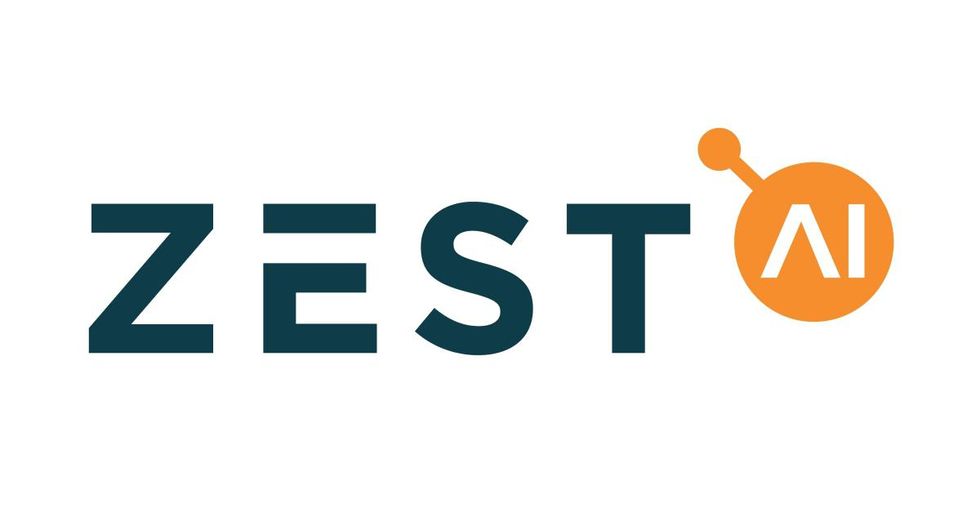
Zest AI ($90 million)
Founded in 2009 by former Google CIO Douglas Merrill and ex-Sears executive Shawn Budde, Zest AI provides AI-powered credit underwriting. It helps banks and other lenders identify borrowers looking beyond traditional credit scores. It claims to improve approval rates while decreasing chargeoffs. The company uses models that aim to make the lending more transparent and less biased. This fall the company raised $15 million from Insight Partners, MicroVentures and other undisclosed investors, putting its pre-money valuation at $75 million, according to PItchbook.

PlayVS
Santa Monica-based PlayVS provides the technological and organizational infrastructure for high school esports leagues. The pandemic has helped the company further raise its profile as traditional sports teams have been benched. Founded in early 2018, PlayVS employs 46 people and has raised over $100 million. In addition to partnering with key educational institutions, it also has partnerships with major game publishers such as Riot and Epic Games.
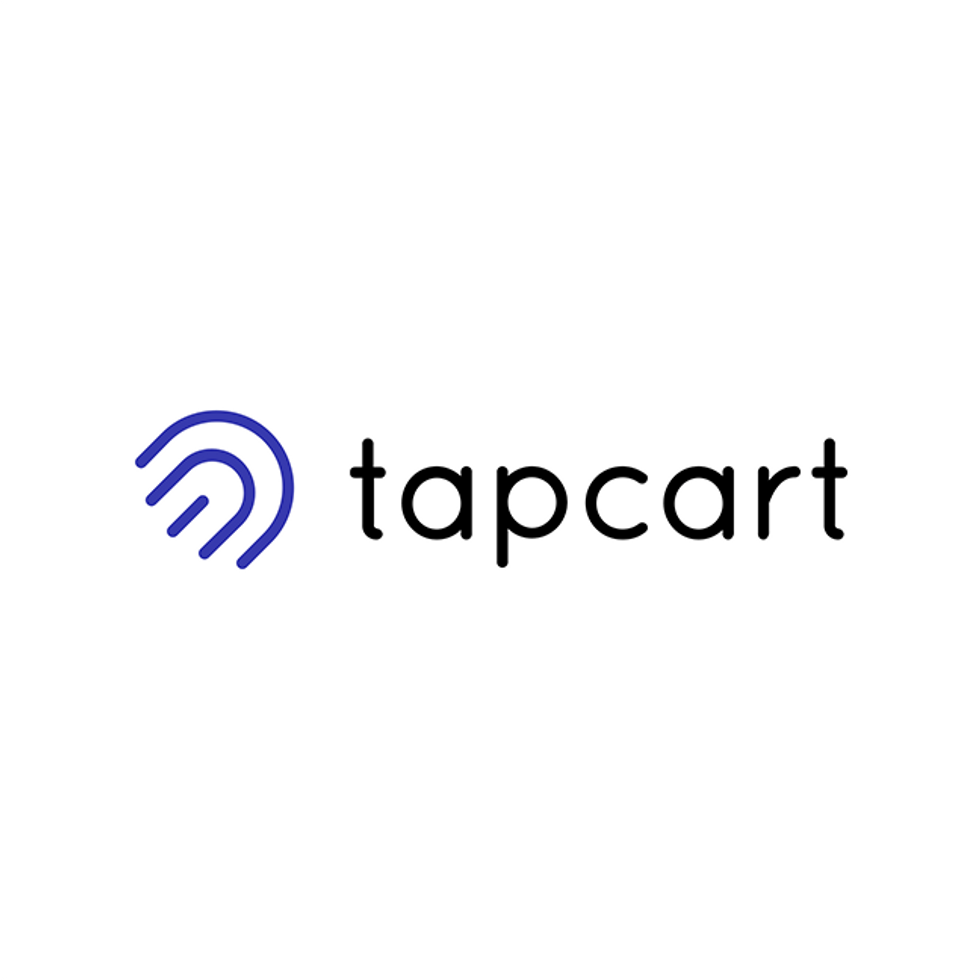
Tapcart ($40 million)
A SaaS platform helps Shopify brands create mobile shopping apps. The marketing software saw shopping activity jump 50% over 90 days as the pandemic walloped traditional retailers. Founded by Eric Netsch and Sina Mobasser, the company raised a $10 million Series A round led by SignalFire, bringing the total raise to $15 million.

Papaya ($31.8 million)
Papaya lets customers pay any bill from their mobile devices just by taking a picture of it. The mobile app touts the app's ease-of-use as a way to cut down on inbound bill calls and increase customer payments. Founded by Patrick Kann and Jason Metzler, the company has raised $25 million, most recently a S10 million round of convertible debt financing from Fika Ventures, Idealab and F-Prime Capital Partners.

Floqast ($250 million)
FloQast is a management software that integrates enterprise resource planning software with checklists and Excel to manage bookkeeping. The cloud-based software company claims its system helps close the books up to three days faster. It is used by accounting departments at Lyft, Twilio, Zoom and The Golden State Warriors. In January, it raised $40 million in Series C funding led by Norwest Venture Partners to bring the total raise to $92.8 million.

Brainbase ($26.5 million)
The company's rights management platform expedites licensing payments and tracks partnership and sponsorship agreements. It counts BuzzFeed, the Vincent Van Gogh Museum and Sanrio (of Hello Kitty and friends fame) among its clients. In May it announced $8 million in Series A financing led by Bessemer Venture Partners and Nosara Capital, bringing the total raised to $12 million.

OpenPath ($28 million)
The Los Angeles-based company provides a touchless entry system that uses individuals cell phones to help with identification instead of a key card. The company offers a subscription for the cloud-enabled software that allows companies to help implement safety measures and it said demand has grown amid the pandemic. Founded by James Segil and Alex Kazerani the company raised $36 million led by Greycroft earlier this year, bringing its total funding to $63 million.

FightCamp ($2.5 million)
FightCamp is an interactive home workout system that turns your space into a boxing ring with a free standing bag, boxing gloves and punch trackers. The company is riding the wave of at-home fitness offerings including Peloton, Mirror and Zwift that have taken off during the pandemic as gyms closed. The company has raised $4.3 million to date.

Numerade
The Santa Monica-based company provides video and interactive content for education in math, science, economics and standardized test prep. Founded in 2018 by Nhon Ma and Alex Lee, who previously founded Tutorcast, an online tutoring service, the company gathers post-graduate educated instructors to create video lessons for online learning.

Our Place ($32.5 million)
The creator of a pan with a cult following on social media, this Los Angeles-based startup designs and retails cookware and dinnerware. Founded by Amir Tehrani, Zach Rosner and Shiza Shahid, the company completed its Series A funding earlier this year, bringing its total raised to date to $10 million.

Tala ($560 million)
For customers that have no formal credit or banking history, this company's application promises more financial access, choice and control. It gathers data to create a credit score that can be used to instantly underwrite and disburse loans ranging from $10 to $500. Co-founded by Shivani Siroya and Jonathan Blackwell, Tala has raised $217.2 million to date. Its investors include PayPal Ventures, Lowercase Capital and Data Collective.

ServiceTitan ($2.25 billion)
Founded in 2007 by chief executive Ara Mahdessian and president Vahe Kuzoyan, ServiceTitan operates software that helps residential home contractors grow their businesses. It provides businesses tools like customer relationship management and accounting integration to streamline operations. The company closed a $73.82 million Series E funding round from undisclosed investors earlier this year.
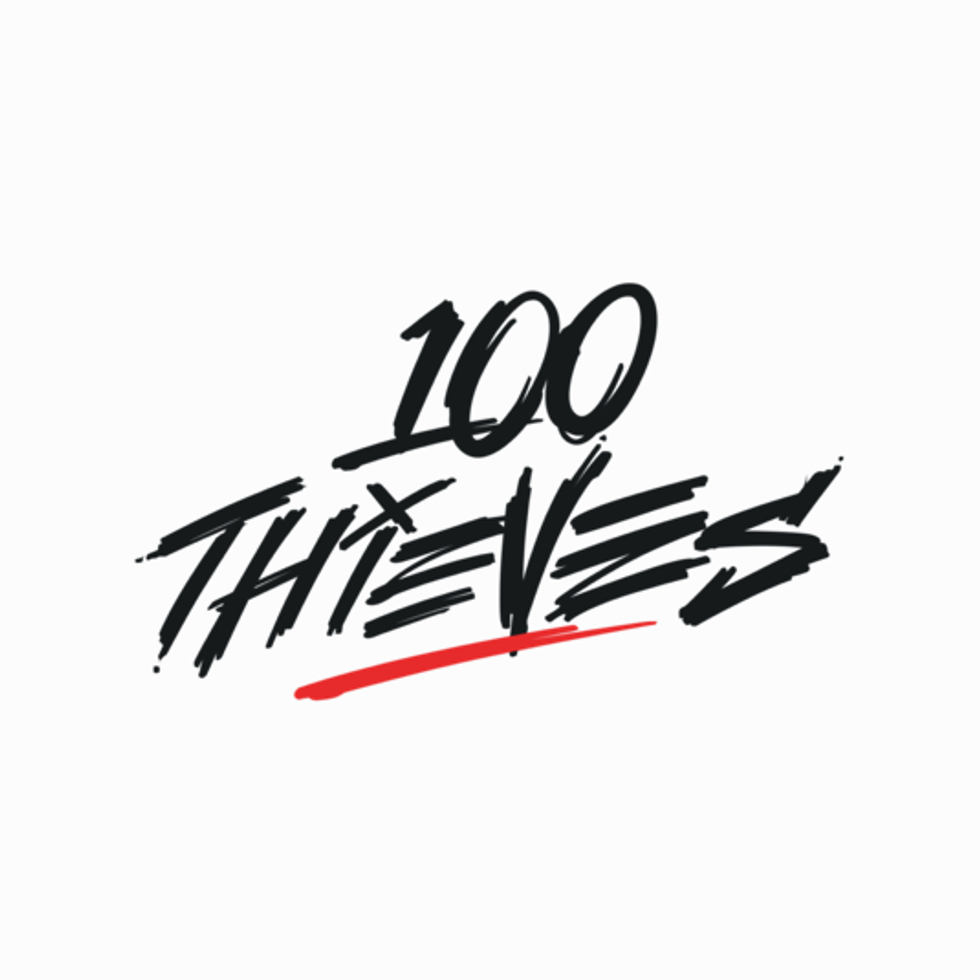
100 Thieves ($160 million)
Founded in 2017 by former professional "Call of Duty" player Matthew Haag, 100 Thieves manages esports competitions in major titles including "Counter Strike Global Offensive" and "League of Legends." The company also produces apparel and merchandise, opening a physical store and training ground called the "Cash App Compound" in collaboration with Fortnite earlier this year. The company has raised $60 million to date, from investors including Salesforce CEO Marc Benioff and Aubrey Graham, better known as the rapper Drake.
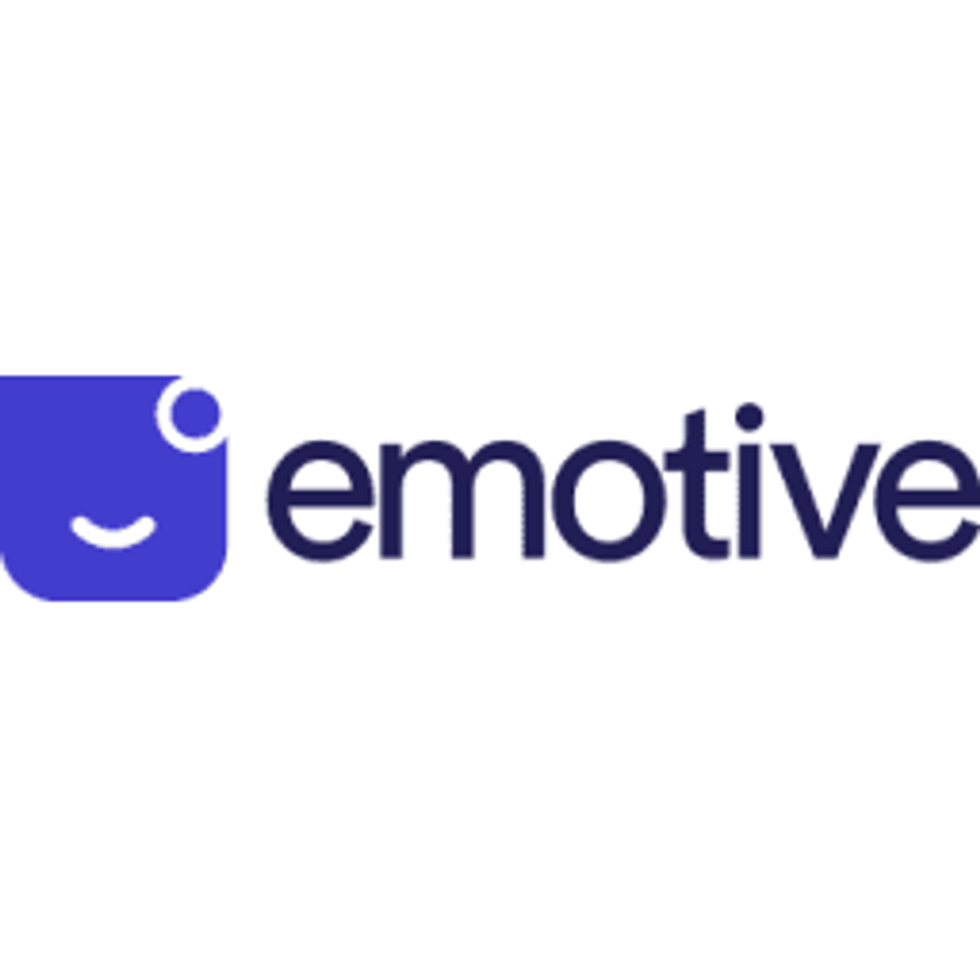
Emotive ($16.5 million)
This AI-powered customer service platform automates text conversations between customers and businesses to increase sales. Emotive uses their sales team to verify questions, distinguishing it from other bot-driven marketing services, according to the company. The company was founded in 2018 by Brian Zatulove and Zachary Wise, who serve as the chief executive and the chief operating officer, respectively. It has raised $6.65 million to date, from Floodgate Fund and TenOneTen Ventures.

Everytable ($33 million)
Created by former hedge fund trader Sam Polk, the Los Angeles-based startup wants to be a healthy fast food chain. It prices its healthy pre-packaged meals around $5 in underserved communities while costing more in other neighborhoods with the goal of reducing so-called food deserts in low-income neighborhoods. It also offers a subscription delivery service. The company recently closed a $16 million Series B round led by Creadev along with Kaiser Permanente Ventures.
Lead art by Candice Navi.
From Your Site Articles
- Los Angeles' Tech and Startup Scene is Growing. - dot.LA ›
- The dot.LA/ Pitchbook Top 50 LA Startups for 2020 Q2 - dot.LA ›
- dot.LA/Pitchbook 50 Hottest Los Angeles Companies - dot.LA ›
- Venture Capitalist Invested $69 Billion into Startups in Q1 - dot.LA ›
- Is NextBite Creating or Solving Problems for Restaurants? - dot.LA ›
- Top LA Angel Investors 2021: McInerney, Rascoff and Lee - dot.LA ›
- LA Startup Jobs Site Interchange.LA Re-Launches - dot.LA ›
- Thankful Raises $12 Million To Boost Customer Service - dot.LA ›
- Young LA Startups Saw Their Valuations Surge in 2021 - dot.LA ›
- VCs Are Flush, But Funding Mostly Male-Led Startups - dot.LA ›
- Largest Raises in Los Angeles in 2021 - dot.LA ›
- Los Anegeles’ Hottest Startups of 2022 - dot.LA ›
- LA Is The Third-Largest Startup Ecosystem in the U.S. - dot.LA ›
- Here Are LA’s Hottest Startups for 2023 - dot.LA ›
Related Articles Around the Web
Ben Bergman
Ben Bergman is the newsroom's senior finance reporter. Previously he was a senior business reporter and host at KPCC, a senior producer at Gimlet Media, a producer at NPR's Morning Edition, and produced two investigative documentaries for KCET. He has been a frequent on-air contributor to business coverage on NPR and Marketplace and has written for The New York Times and Columbia Journalism Review. Ben was a 2017-2018 Knight-Bagehot Fellow in Economic and Business Journalism at Columbia Business School. In his free time, he enjoys skiing, playing poker, and cheering on The Seattle Seahawks.
https://twitter.com/thebenbergman
ben@dot.la
Swipe Less, Know More, Build Faster: LA’s AI Push
10:25 AM | November 07, 2025
🔦 Spotlight
Happy Friday LA!
This week was about AI moving from side feature to core product strategy. Tinder is testing an opt-in “Chemistry” flow that learns your interests with permission, including signals from your camera roll, to propose fewer, higher quality matches. Snap is wiring Perplexity’s conversational, source linked answers directly into Snapchat. And Rivian spun out Mind Robotics to take the industrial AI it built for its own lines to a broader market.
Tinder Bets on AI for Quality Over Quantity
Tinder is piloting Chemistry, an opt-in experience that starts with a short Q&A and, with permission, analyzes cues from your camera roll to build a richer picture of what you like. The aim is to cut through swipe fatigue by presenting a smaller set of high intent matches each day, first in New Zealand and Australia, as part of Match Group’s larger 2026 product overhaul. The pitch is relevance and control, with phased rollout and consent front and center; if engagement lifts, expect tighter loops between real world signals and match recommendations.
Snap Brings Perplexity Answers into Snapchat
Snap struck a deal with Perplexity to deliver conversational, source linked results inside Snapchat starting in early 2026, backed by a one year cash and equity package reportedly worth about 400 million dollars. Ask a question where you already spend time and get a cited answer without hopping to a mobile browser, with Snap emphasizing that Snapchat data will not train Perplexity’s models. The announcement landed alongside improving fundamentals, signaling Snap’s plan to make trustworthy answers feel native to social habits rather than a separate destination.
Rivian Spins Out Mind Robotics
Rivian formed Mind Robotics to productize the software and systems that coordinate its own manufacturing, raising roughly 110 to 115 million dollars led by Eclipse. The goal is to sell factory floor intelligence beyond vehicles, including adaptive quality control, smarter material handling, and autonomous workflows that reduce downtime. With Rivian’s headquarters in Irvine and a growing regional robotics talent base, this puts Southern California on the map for next generation industrial automation tied to the EV supply chain.
Bottom line
LA’s tech scene is pushing AI toward measurable outcomes: better match quality, faster answers with clear citations, and more efficient production. Keep an eye on the unsexy details, including privacy choices and user consent, data boundaries between partners, and how each team turns these features into monetization. That is where this week’s announcements will turn into lasting advantage.
🤝 Venture Deals
LA Companies
- Evotrex exited stealth with a $16M Pre-A round led by Xstar Capital, with Unity Ventures, Kylinhall Partners, Vision Plus Capital, and founders of Anker Innovations participating; the capital will expand engineering and speed commercialization of its first product. The California startup plans to debut what it calls the world’s first power-generating RV trailer at CES 2026, designed to provide off-grid power and help extend EV range while towing. - learn more
- Zest AI, which provides AI-driven credit underwriting and lending intelligence for banks and credit unions, closed an oversubscribed, customer-led financing round from SchoolsFirst, Members 1st, ORNL, and Truliant credit unions, with participation from Citi Ventures. The company says the round came at a higher valuation than its prior growth raise and will fund more automation across the borrower journey and a broader rollout of LuLu, its generative AI lending-intelligence platform. - learn more
- Estate Media, the social first real estate media startup co-founded by “Million Dollar Listing” star Josh Flagg, says it has surpassed $6M in revenue and closed a $1M seed round, bringing total funding to $2.65M. New investors include Tinder co-founder Justin Mateen and real estate and media figures such as Samir Mezrahi (“Zillow Gone Wild”), Tracy Tutor, and Hudson Advisory, which the company says positions it for profitability and further growth. - learn more
LA Venture Funds
- Cedars Sinai Ventures joined Amae Health’s $25M Series B, led by Altos Ventures with participation from Quiet Capital, Bling Capital, Healthier Capital, and 8VC. The company, which is building an AI enabled clinic model for severe mental illness, says the funding will accelerate nationwide clinic openings, advance its AI care platform, and support research into conditions like schizophrenia, bipolar disorder, and treatment resistant depression. Total funding now tops $50 million. - learn more
- Magnify Ventures participated in MiSalud Health’s new funding round led by IGNIA, alongside Ulu Ventures, Redwood Ventures, Amplifica Capital, and client investor Taylor Farms. MiSalud, which delivers bilingual virtual and on-site care for blue-collar workforces, says the capital will help it expand into 20 new states and add services typically offered only in person; reports peg total funding at about $18.3 million. - learn more
- Alexandria Venture Investments participated in Accipiter Biosciences’ $12.7M seed round, which was co-led by Takeda and Flying Fish Partners. The Seattle startup is developing AI-designed de novo protein therapeutics that can combine multiple mechanisms in a single molecule, and it also announced partnerships with Pfizer and Kite Pharma alongside the financing. The company says the funds will advance preclinical programs in immunology and oncology and further build out its computational design platform. - learn more
- Rebel Fund participated in Cactus’s $7M seed round alongside Wellington Management, Y Combinator, and Pelion Venture Partners. Cactus builds a 24/7 AI copilot for home service businesses that answers calls, qualifies leads, books jobs, and manages follow ups to capture after hours demand. The company says the funding will support product expansion and go to market growth in the United States. - learn more
- B Capital joined the angel round for Microtide Biotechnology (also known as Weitao Bio), which raised over RMB 100 million, led by Qiming Venture Partners. The Shanghai company, spun out from Sile Biomedicine’s in vivo CAR T platform, is developing targeted LNP delivered in vivo CAR T therapies for blood cancers and autoimmune diseases, and will use the funds to advance its first candidate and further develop its core platform. - learn more
- Patron co led Flint’s $15M Series A, with participation from the USC Viterbi School of Engineering alongside Basis Set Ventures, AME Cloud Ventures, Afore Capital, and Y Combinator. Flint builds an AI platform that helps teachers personalize K 12 learning, and the company says the funding will accelerate product development and scale the service to more schools. - learn more
- Rebel Fund participated in Freya’s $3.5M round alongside Y Combinator, 212 VC, N1 Tech, BD Partners, and others. Freya is building voice automation tools that let companies create and manage natural language voice workflows, aiming to replace brittle IVR systems with more flexible, AI powered voice agents. The company says the funding will accelerate product development and early go to market efforts. - learn more
- Regeneration.VC led Hullbot’s roughly $10.6M Series A, with participation from Climate Tech Partners, Katapult Ocean, Folklore, Trinity Ventures, Rypples, NewSouth Innovations, and Bandera Capital. The Australian startup builds autonomous hull-cleaning robots that remove biofouling to cut ship fuel use and emissions, and it plans to use the funding to ramp manufacturing, expand global service hubs, and develop larger robotic platforms. - learn more
- M13 led Teleskope’s $25M Series A, with continued participation from Primary Venture Partners and Lerer Hippeau. Teleskope builds an agentic data security platform for the AI era, and says the capital brings total funding to $32.2M to accelerate product development and scale go to market. - learn more
- SmartGateVC participated in Coherence Neuro’s $10M seed round led by Topology Ventures and Artesian, alongside Blackbird, Possible Ventures, XEIA, Jumpspace, Divergent, Spacewalk VC, and others. San Francisco based Coherence Neuro is developing a closed-loop, bi-directional neurotechnology platform to treat cancers like glioblastoma by decoding and modulating electrical signals; the funding will support its first human trials and further product development. - learn more
- Rebel Fund participated in Mecha Health’s $4.1M seed round led by Valia Ventures, alongside Y Combinator, Reach Capital, and Phosphor Capital. Mecha Health is an applied AI lab that builds foundation models for radiology which read medical images and generate fully structured reports, and the new capital supports continued development and deployment of these systems. - learn more
LA Exits
- Green Econome was acquired by VCA Green, the sustainability practice of VCA Consultants. The Los Angeles firm is known for lifecycle strategies, building performance reporting, and compliance services like ENERGY STAR, LEED, CALGreen, and Title 24; combining it with VCA Green’s energy modeling, project management, and field verification creates a single team serving both new construction and existing buildings. Marika Erdely, Green Econome’s founder, is joining VCA Green as a principal. - learn more
- InData Consulting was acquired by The 20 MSP as part of a three-company deal that also included Red Level Group and iStreet Solutions. The additions expand The 20 MSP’s footprint in California, Arizona, Michigan, and the Sacramento area, bringing its total to 44 acquisitions in about three years. The company says it sources targets from its peer group to speed integrations and reduce attrition. - learn more
- Caulipower was acquired by Urban Farmer, a Paine Schwartz Partners portfolio company, creating a vertically integrated “better for you” frozen foods platform that pairs Urban Farmer’s manufacturing with Caulipower’s nationwide brand and distribution. Caulipower will continue operating under its name, with founder Gail Becker joining Urban Farmer’s board; financial terms were not disclosed. - learn more
- StudyOS was acquired by Sitero, a technology-enabled CRO, which simultaneously launched SiteroAI to position itself as the industry’s first fully AI-powered CRO. StudyOS’s Ash clinical-trial agent will be integrated with Sitero’s Mentor eClinical suite, with Sitero projecting 20–30% efficiency gains across the trial lifecycle beginning in 2026; terms were not disclosed. - learn more
Read moreShow less
LA Tech Week: Final Days • Coco’s bots, Anduril’s helmet AI, Impulse’s moon freight
08:05 AM | October 17, 2025
🔦 Spotlight
Happy Friday Los Angeles,
Founders are closing out Tech Week, robots are getting a new research brain, space logistics are taking shape, and defense tech just moved mission command into a helmet.
Anduril’s EagleEye: mission command, heads up

Anduril introduced EagleEye, a helmet mounted system that puts maps, comms, sensor fusion, and on device AI directly in a warfighter’s line of sight, integrated with the Lattice stack. The goal is simple: less time looking down at a tablet and more decisions made at the edge.
Impulse Space: a practical path to lunar deliveries

Impulse outlined a two piece ride to the Moon. Its Helios stage ferries an Impulse built lander to lunar orbit in about a week, the lander detaches, then descends to the surface without in-space refueling. The company says each mission could carry about three tons and that starting in 2028 it could run two missions per year for roughly six tons total, filling the gap between today’s small CLPS deliveries and future heavy landers.
Coco Robotics: new lab, new chief AI scientist
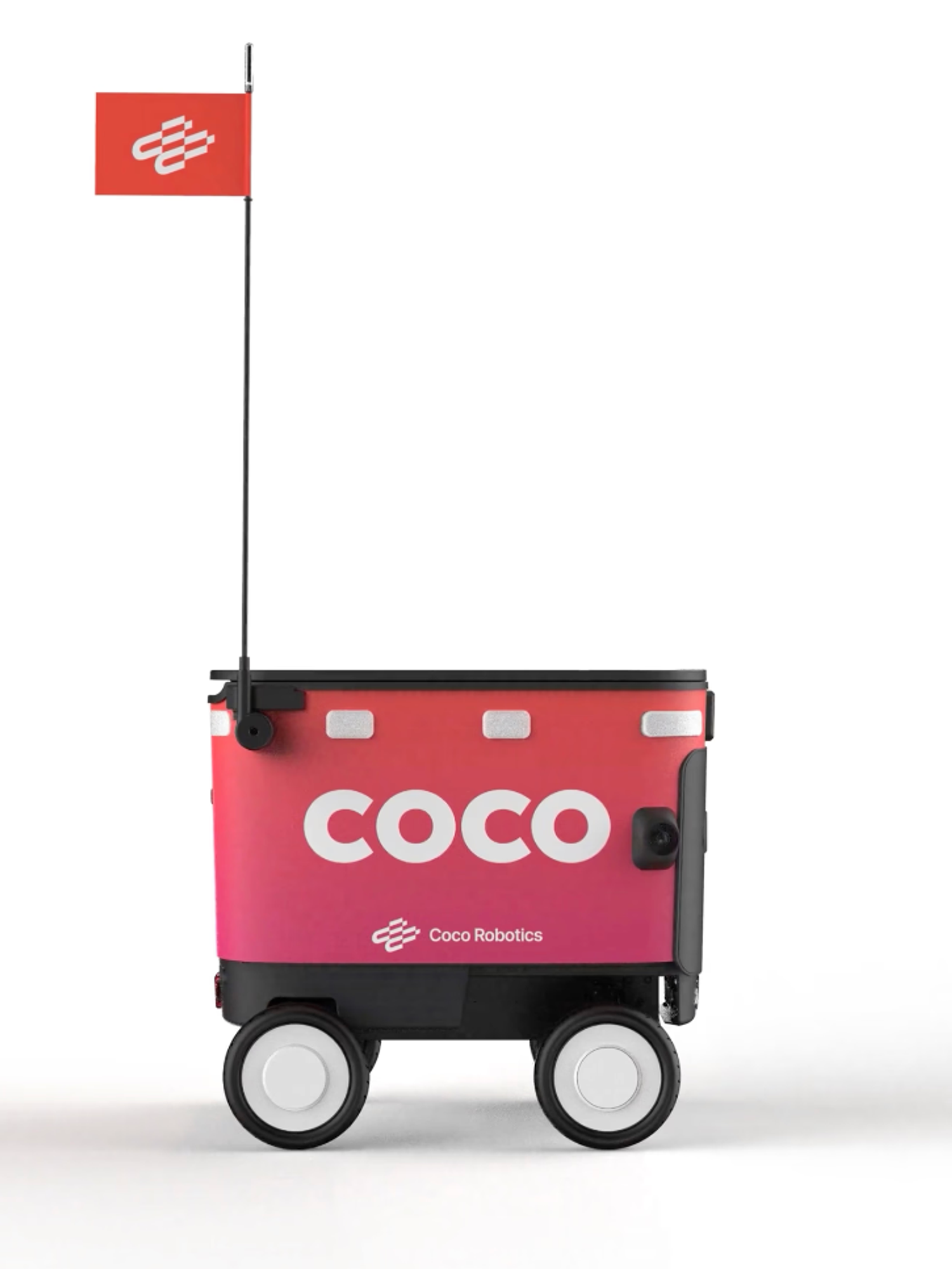
Coco named UCLA’s Bolei Zhou chief AI scientist and is launching a physical AI research lab to turn years of curbside driving data into faster, more autonomous sidewalk deliveries. Expect quicker iteration from data collection to local models on the bots.
LA Tech Week: last three days
We are down to the final few days of LA Tech Week 2025. If you are still slotting meetings or panels, use the rundowns to plan your route:
Scroll for the most recent LA venture deals, funds, and acquisitions.
🤝 Venture Deals
LA Companies
- Second Nature, an AI role-play training platform for sales and service teams, raised $22M Series B led by Sienna VC with participation from Bright Pixel, StageOne Ventures, Cardumen, Signals VC, and Zoom (also a customer). The company will use the funding to expand operations and advance its platform, which generates AI-driven practice scenarios and feedback for enterprise clients like Oracle, Zoom, Adobe, Teleperformance, and Check Point. - learn more
- Pelage Pharmaceuticals, a Los Angeles–based biotech developing regenerative treatments for hair loss, raised a $120M Series B co-led by ARCH Venture Partners and GV. Participants include Main Street Advisors, alongside Visionary Ventures and YK Bioventures; proceeds advance PP405, a topical small molecule that reactivates dormant hair-follicle stem cells, toward Phase 3 in 2026 following positive Phase 2a data. - learn more
- Launchpad, an AI-first robotics company for factory automation, raised an $11M Series A to speed product development and meet demand across the U.S., U.K., and Europe. The round was co-led by Lavrock Ventures and Squadra Ventures, with participation from Ericsson Ventures, Lockheed Martin Ventures, Cox Exponential, and the Scottish National Investment Bank; it follows $2.5M in grant funding from Scottish Enterprise. - learn more
- Mythical Games raised a Series D round, with a strategic investment from Eightco Holdings alongside ARK Invest and the World Foundation. The partnership focuses on human verification and digital identity in gaming, tapping Worldchain/Worldcoin’s Proof-of-Human infrastructure. The transaction is expected to close the week of October 20. - learn more
- Electric Entertainment, the L.A. studio behind “Leverage,” “The Librarians,” and “The Ark,” secured a $20M investment from Content Partners Capital. The funding follows CPC’s launch of an investment arm in April 2024 and is aimed at supporting Electric’s growth across production and distribution. - learn more
- Everyset raised $9M to launch Background Payroll, a SAG-AFTRA approved platform that automates timecards and payroll for background performers, including overtime, penalties, and premiums. The round was led by Crosslink Capital and Haven Ventures, and the company says studios such as Netflix, CBS, Apple TV, Sony, and Amazon already use its tools as it expands into fully integrated background payroll. - learn more
- TORL Biotherapeutics raised $96M in Series C funding to advance TORL-1-23, its Claudin-6 targeted antibody-drug conjugate, through a pivotal Phase 2 study in platinum-resistant ovarian cancer and into a confirmatory Phase 3 program. The company also reported that updated Phase 1 data for TORL-1-23 will be presented at ESMO 2025, bringing total funding since its 2019 founding to more than $450 million. - learn more
- The Plug, a plant-based liver health brand, raised $5M in a venture round of equity and debt to fuel marketing and retail expansion after rolling out its Pill Jar in June and entering all Total Wine & More locations nationwide in September. The company is keeping the round open for additional strategic investors and says it recently hit its first profitable month, is pursuing a partnership with a $500 million nutrition telehealth company, and is targeting a 40% boost to gross margins through a new operational milestone. - learn more
LA Venture Funds
- Clocktower Technology Ventures participated in MGT’s $21.6M Series B, an oversubscribed round led by Mubadala Capital with Tacora Capital and existing backers also joining. The AI-native commercial P&C neo-insurer for small businesses will use the capital to accelerate R&D, deepen vertical AI capabilities, and expand its E&S initiatives nationwide. - learn more
- M13 participated in Daylight’s $75M financing, which combines $15M in equity led by Framework Ventures with a $60M project facility led by Turtle Hill Capital. Daylight is building a decentralized energy network that turns homes into mini power plants via a subscription model and crypto-enabled incentives, aiming to lower costs and dispatch battery power back to the grid. - learn more
- Presight Capital co-led Peptilogics’ $78M Series B2, with Beyond Ventures participating, to fund a Phase 2/3 pivotal trial of zaloganan (PLG0206) for prosthetic joint infections. The raise brings Peptilogics’ total equity financing to about $120M and positions the company to begin the pivotal program in late 2025, pending approvals. - learn more
- Patron participated in Ego AI’s $6.7M seed round to help the YC-backed startup launch human-like AI characters for games via its new character.world engine. The round also included Y Combinator, Accel, and Boost VC, and the capital will support research on Ego’s proprietary model, which combines small language models with reinforcement learning, plus partnerships in Singapore to scale compute and development. - learn more
- Untapped Ventures participated in Woz’s $6M seed round, joining Cervin Ventures (lead), Y Combinator, Burst Capital, MGV, and the Lacob family. The funding will help Woz scale its platform that blends agentic AI with expert human oversight to deliver production-ready mobile apps for enterprises. - learn more
- Perseverance Capital participated in Kailera Therapeutics’ $600M Series B, which was led by Bain Capital Private Equity. The funding advances KAI-9531, an injectable dual GLP-1/GIP agonist, into global Phase 3 trials by year end and supports a broader pipeline of oral and injectable obesity therapies. - learn more
- March Capital participated in Lila Sciences’ $350M Series A, which lifts the company’s total funding to $550M. The capital will scale Lila’s AI Science Factories and commercialize its “scientific superintelligence” platform for partners across materials, energy, and biopharma. - learn more
- Mucker Capital participated in Pear Suite’s $7.6M Series A, which was co-led by Rock Health Capital and Nexxus Holdings. The L.A. based company equips community health workers with an AI-powered platform and provider network, and it will use the funding to expand product development, grow its network, and support new Medicaid and Medicare health plan contracts. Other investors include Enable Ventures, The SCAN Foundation, Acumen America, Impact Engine, and the California Health Care Foundation. - learn more
- Upfront Ventures participated in Renew’s $12M Series A, which was led by Haymaker Ventures with Goldcrest Capital and several Renew customers also investing. Renew’s AI-powered resident retention platform helps apartment operators automate renewals and prevent fraud, and the company says the new funding will scale the product and launch what it calls the industry’s first Resident Referral Network. - learn more
- Acre Venture Partners co-led Ascribe Bio’s oversubscribed $12M Series A with Corteva to scale its natural crop protection platform and launch Phytalix, a broad spectrum “biofungicide without compromise.” The funding advances Ascribe’s small molecule technology derived from the soil microbiome toward commercial rollout, with participation from Syngenta Group Ventures, Trailhead Capital, Silver Blue, Cultivation Capital, and others. - learn more
- Alexandria Venture Investments participated in Tr1X’s $50M financing, announced alongside FDA clearance of the IND for TRX319, an allogeneic CAR-Tr1 Treg cell therapy for progressive multiple sclerosis. The funding extends Tr1X’s runway into 2027 and supports a Phase 1/2a dose-escalation trial slated to start in early 2026, while the company continues its TRX103 studies in Crohn’s disease and other indications. - learn more
- LFX Venture Partners participated in FleetWorks’ $17M funding, which supports the launch and expansion of its “always-on” AI dispatcher for the U.S. trucking industry. The round was led by First Round Capital with participation from Y Combinator and Saga Ventures, and the company says the capital will go toward hiring, commercial rollout, and product development. FleetWorks’ platform automates freight matching between carriers and brokers to speed up bookings and reduce manual calls, emails, and texts. - learn more
- Clocktower Technology Ventures participated in Yendo’s $50M Series B. The fintech behind a vehicle-secured credit card will use the funding to expand its AI credit platform toward an inclusive digital bank that taps “trapped” consumer equity, aiming to unlock up to $4 trillion from assets like cars and homes for underserved borrowers. - learn more
- Alpha Edison participated in TransCrypts’ $15M seed round. The company builds a blockchain-based verified-credentials platform to fight AI-driven fraud and plans to expand beyond employment verification into health and education records. - learn more
- Alexandria Venture Investments participated in Nilo Therapeutics’ $101M Series A, which launched the company to develop medicines that modulate neural circuits to restore immune balance in disease. The round was led by The Column Group, DCVC Bio, and Lux Capital; Nilo also appointed Kim Seth, Ph.D., as CEO and plans to build out New York labs and advance preclinical programs. - learn more
- Chapter One participated in Glue’s $20M Series A. Glue builds an “agentic team chat” platform that embeds MCP-powered AI directly in workplace messaging, with 35 in-app integrations and support for thousands more via custom MCP servers. The funding will help expand product development and infrastructure as Glue pushes this model to more teams. - learn more
- StillMark participated in Meanwhile’s $82M raise, backing the Bermuda-regulated bitcoin life insurer as it expands bitcoin-denominated savings, retirement, and life insurance products for individuals and institutions. The round was co-led by Bain Capital Crypto and Haun Ventures with participation from Apollo, Northwestern Mutual Future Ventures, and Pantera Capital, and brings Meanwhile’s 2025 funding to $122 million after an earlier $40 million Series A. - learn more
- Blue Bear Capital co-led Energy Robotics’ $13.5M Series A with Climate Investment. The Darmstadt-based company provides AI software that lets robots and drones autonomously inspect critical infrastructure, and it will use the funding to scale deployments across energy, chemical, industrial, and utility sites. Customers already include majors like Shell, BP, BASF, Merck, and E.ON, and the company reports more than one million inspections completed to date. - learn more
- B Capital participated in EvenUp’s $150M Series E, which values the AI legal-tech company at over $2 billion. EvenUp builds AI tools for personal-injury law firms and plans to use the new capital to scale its platform and product suite; the round was led by Bessemer Venture Partners, with investors including REV (LexisNexis) and others. - learn more
- WndrCo participated in Zingage’s $12.5M seed round to build an AI care-delivery platform for home-based healthcare. Zingage is rolling out “Operator,” which automates scheduling, staffing, billing, and compliance for home care agencies, and “Perform,” which boosts caregiver retention, with the new capital supporting product expansion and go-to-market. The round was led by Bessemer Venture Partners with additional investors including TQ Ventures and South Park Commons. - learn more
- Alexandria Venture Investments participated in AeroRx Therapeutics’ $21M Series A, which was led by Avalon BioVentures with Correlation Ventures also investing. The funding advances AERO-007, a first-in-class nebulized LABA/LAMA for COPD, into late-stage clinical development aimed at patients who struggle with handheld inhalers. - learn more
- Alexandria Venture Investments participated in Affinia Therapeutics’ $40M Series C, alongside lead investor NEA and new investor Eli Lilly, to advance its AAV gene therapy pipeline. Proceeds will fund an IND submission in Q4 2025 and initial clinical work for AFTX-201 in BAG3 dilated cardiomyopathy, with a Phase 1/2 trial targeted for Q1 2026. - learn more
- Clocktower Ventures participated in Vycarb’s $5M seed round, which was led by Twynam with participation from MOL Switch, Hatch Blue, Idemitsu, and SGInnovate. The Brooklyn startup develops sensor-driven, water-based carbon capture and storage systems that convert CO₂ into stable bicarbonate, with the new funding aimed at scaling deployments at industrial sites. - learn more
LA Exits
- Empaxis Data Management was acquired by Communify, which is integrating Empaxis’ custodial and accounting data connections and operations expertise into its financial AI platform. The aim is to remove fragmented data so wealth and asset managers can deploy MIND AI apps like Client Stories and Portfolio Stories more quickly with cleaner, unified data. Communify also cites pre-integrations with over 175 market-data vendors to speed rollouts. - learn more
- TrueCar is being acquired by founder-led Fair Holdings (Scott Painter) in an all-cash deal at $2.55/share (~$227M), with Painter set to return as CEO. A 30-day go-shop runs through Nov. 13, 2025; largest holder Caledonia supports the acquisition, which is expected to close Q4 2025 or early 2026 pending approvals. - learn more
- Kate Somerville Skincare was acquired by Rare Beauty Brands, as Unilever moves to divest the prestige label it has owned for a decade. The deal includes the skincare and body-care lines as well as the brand’s Melrose Place clinic in Los Angeles; terms weren’t disclosed and closing is expected in Q4 2025 pending approvals. - learn more
- 3GC Group was acquired by Pandoblox, combining 3GC’s enterprise IT operations and cybersecurity services with Pandoblox’s Themis AI data platform to form a unified, AI-ready data and IT operations offering for mid-market companies. The deal aims to solve fragmented data and IT workflows so growing businesses can get enterprise-grade intelligence, security, and support through a single partner. - learn more
- The Free Press was acquired by Paramount, and co-founder Bari Weiss will become editor in chief of CBS News as part of the deal. Paramount says the move pairs CBS News’ scale with The Free Press’ voice, with Weiss reporting to CEO David Ellison and working to “modernize” the brand. - learn more
Read moreShow less
RELATEDTRENDING
LA TECH JOBS


